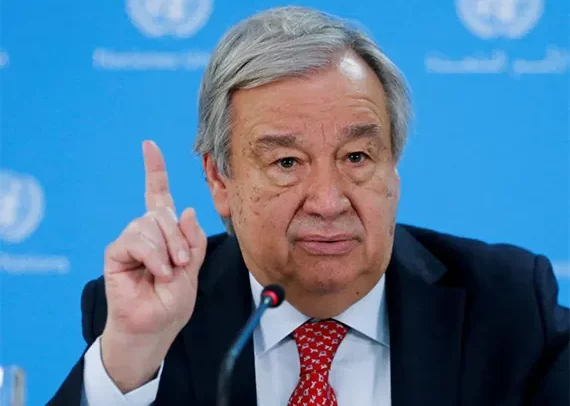Antonio Guterres
The United Nations (UN) Secretary-General, Antonio Guterres, has called for member states to make “bold pledges” at the beginning of the UN Oceans Conference on Monday, June 9, 2025.
A statement issued by the UN, indicated that the event is the third UN Oceans Conference with 55 heads of state or government expected to attend (where 10 Ocean Action Panels are to give evidence).
The conference, which is being held in Nice and co-hosted by France and Costa-Rica, is seen as critical by environmental scientists in protecting ocean environments from further degradation caused by climate change and human activity.
Secretary-General of the conference, Li Junhua, gave a rallying call for immediate action in his opening speech, saying “we need billions, not millions, in investment. We need binding commitments that survive political transitions and economic pressures.”
It is hoped that the conference will produce the Nice Ocean Action Plan, a new high-seas treaty that will bring two key agreements made in 2023 into international law.
The first is the ratification of the Marine Biodiversity Treaty, which will increase funding into marine conservation, and second is the formal creation of Marine Protected Areas (MPAs), which are designed to protect 30% of the ocean.
The creation of MPAs is seen as particularly crucial given that US President Donald Trump signed an executive order in April stating that permits would be re-issued for the extraction of critical minerals in international waters.
Over 2,000 scientists last week recommended that the conference should halt deep sea exploration while more research is carried out.
Mr. Guterres hinted at the importance of ratifying the creation of MPAs when he said that the deep-sea cannot become the “wild west.”
French President, Emmanuel Macron, followed suit in his own speech, saying that the ocean is “not for sale.”
Other parts of the Nice Ocean Action Plan are expected to include ending illegal, unreported and unregulated fishing practices, and the acceleration of decarbonising maritime transport.
However, only 49 countries have ratified the potential high-seas treaty out of the necessary 60 for the agreement to become international law, with the conference ending on Friday.
There has also been criticism that the deal does not include a ban on bottom-trawling in MPAs, which is thought of as one of the most destructive processes for maritime life.
By James Reinhardt


